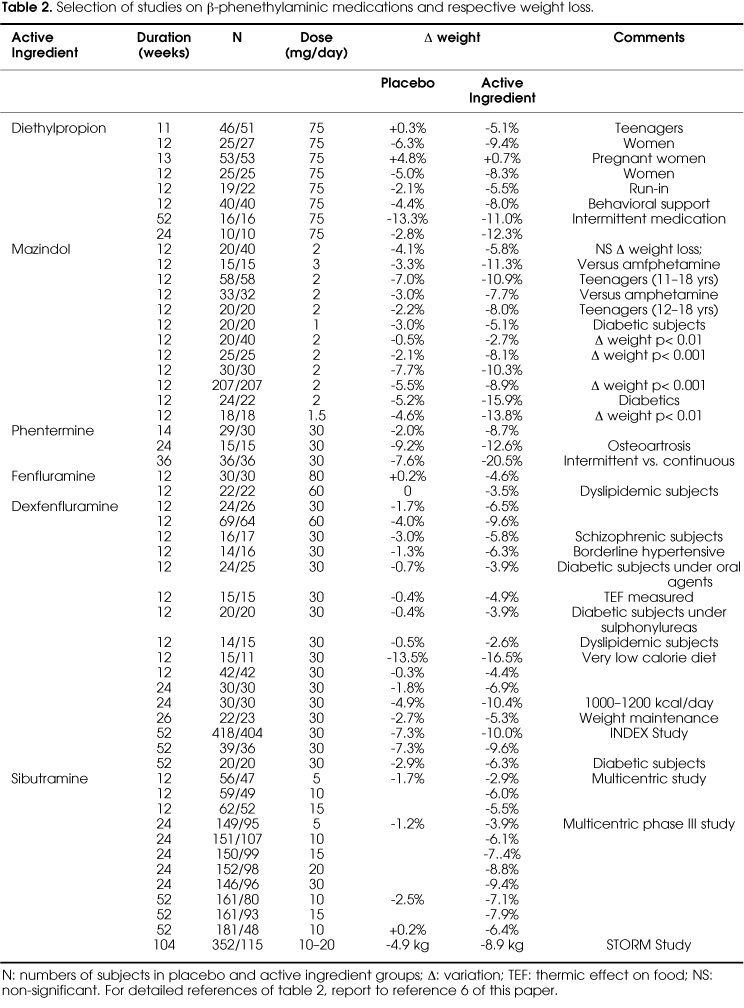This review offers an overview of physiological agents, current therapeutics, as well as medications, which have been extensively used and those agents not currently available or non-classically considered anti-obesity drugs. As obesity - particularly that of central distribution - represents an important triggering factor for insulin resistance, its pharmacological treatment is relevant in the context of metabolic syndrome control. The authors present an extensive review on the criteria for anti-obesity management efficacy, on physiological mechanisms that regulate central and/or peripheral energy homeostasis (nutrients, monoamines, and peptides), on beta-phenethylamine pharmacological derivative agents (fenfluramine, dexfenfluramine, phentermine and sibutramine), tricyclic derivatives (mazindol), phenylpropanolamine derivatives (ephedrin, phenylpropanolamine), phenylpropanolamine oxytrifluorphenyl derivative (fluoxetine), a naftilamine derivative (sertraline) and a lipstatine derivative (orlistat). An analysis of all clinical trials - over ten-week long - is also presented for medications used in the management of obesity, as well as data about future medications, such as a the inverse cannabinoid agonist, rimonabant.
Obesity; Treatment; Anfepramone; Mazindol; Sibutramine; Orlistat; Rimonabant




